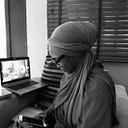Member-only story
What You Need to Know About Internalized Colourism
The Often Painful Stereotypes of Colourism are Linked to Racism

My mother showed me pictures of my great-grandmother. She was a smart, petite woman with skin the shade of a walnut. I saw admiration in the eyes of everyone who talked about her. They spoke of her sass, her affluence, and how she raised her middle finger when the world tried to draw her back. I was told that my younger sister shared her traits; the petite body, high cheekbones, and walnut skin. My mother would work thick pastes of Vaseline jelly into my sister’s skin until it came out shiny like raw black gold. I, on the other hand, was two shades lighter — a direct point of comparison, like my mother and her mother before her. I never failed to take notice of how everyone around us drew a line of distinction between me and my sister based on the shades of our skin.
As children who were trying to figure out our own identities on a day-to-day basis, we were exposed to colour-conscious discourse at a rather early age. Colourism — the prejudice based on skin tone, often marked by a preference for lighter shades of skin, was something we had to confront every day. From the school teacher who referred to my sister as “burnt dodo” to the light-skinned school children who tormented and teased her about her complexion and the headmistress who took sides with the light-skinned bully because, of course, “Dorathy looks too innocent to be the trouble maker”, the reality was there in our faces every day. Our parents would tell her to pay no heed, but it hurt to know that people were not only callous but would also not hesitate to take down a child’s self-esteem based on the colour of her skin.
Years later, I would come to realise that the issue of colourism is a stream that runs so deep. Often resulting in rape, social marginalization, a complex of inferiority, social injustice, and even suicide, it is a tragic and sobering fact to comprehend that colour — how dark or light you are, does not only determine whether or not you get the job that you worked so hard for but is additionally a prerequisite to being perceived as worthy of love by a prospective partner, who is presumably someone of your race. People with darker shades of skin are associated with criminality and are perceived as more…

